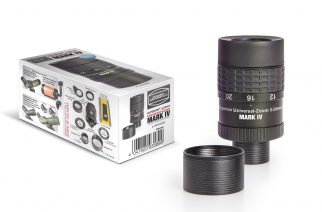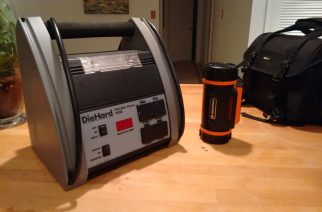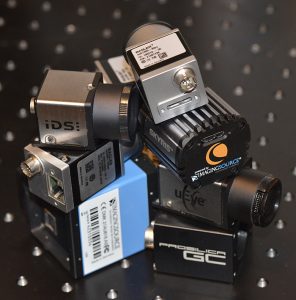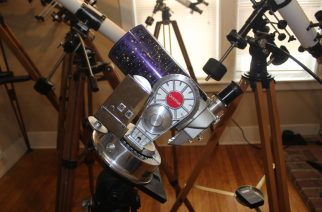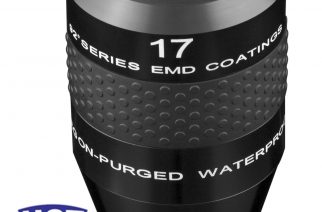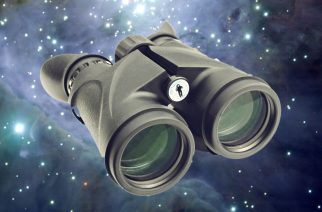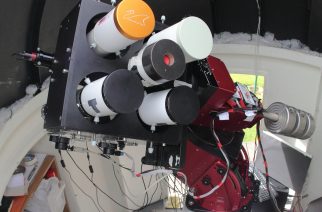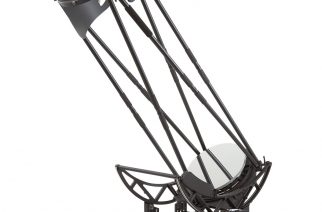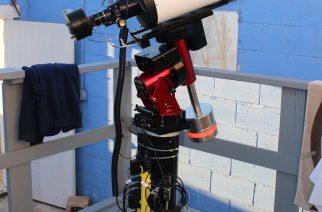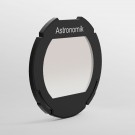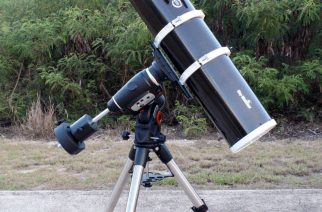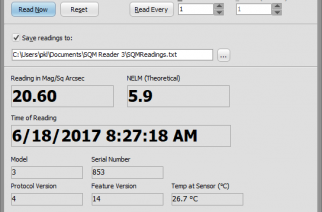Baader Planetarium’s famed Hyperion 8-24 mm Zoom eyepiece, now in its fourth generation as the Hyperion Zoom Mark IV Eyepiece, continues the line’s High Quality Phantom Coating Group Multicoatings, for revealing faintest objects at maximum contrast with total freedom from reflections. The Hyperion Zoom Mark IV Eyepiece click-stop action – […]
Author: Stuart Parkerson
Celestron Lithium PowerTank Review
Celestron Lithium PowerTank Review: The leaps between the technology of today versus that when I received an un-motorized equatorial 114-mm Newtonian reflector as a 10-year-old in 1988, are mind boggling. I would have barely recognized today’s average reflectors, with red-dot finders, go-to drives, things that plug and unplug, and that […]
Genika Astro Image Acquisition Software
AiryLab’s Genika Astro is an astro image acquisition software dedicated to astronomical imaging. It supports high-speed cameras and sensors such as CCD, CMOS, sCMOS, EMCCD and NIR sensors from manufacturers including Andor, AVT, Basler, IDS, PointGrey, Raptor Photonics, Celestron, The Imaging Source and ZWO. Genika Astro offers enhanced performance for […]
Astronomy Shoppe Telescope Repair and Restoration
Astronomy Shoppe’s Olde School Optics telescope repair and restoration division specializes in the restoration and sales of telescopes, eyepieces and optics from a bygone era – high-quality, classic instruments that were typically manufactured in all metal – no plastic parts or computers, just excellent optics. In addition to refurbishing classic […]
Explore Scientific 92 Degree Eyepiece Review
Explore Scientific 92 Degree Eyepiece Review: Due to primarily using Dobsonians and altitude/azimuth scopes, I’ve long enjoyed and preferred wide-field eyepieces to the standard 40-50 degree oculars. And with the continued advancement in optical coatings, I’ve found that light transmission loss from eyepieces that incorporate more lens elements has become […]
3D Astronomy Space Walker Binocular Review
3D Astronomy Space Walker Binocular Review: I’m at a loss for words. Oh, it’s easy enough to conclude that I tried 3D Astronomy’s 8×42 Space Walker binoculars and enjoyed them – so much so that I re: commend you try them, too. The hard part is conveying why. You expect […]
MiniWASP Parallel Imaging Telescope Array
Editor’s Note: To show the MiniWASP Parallel Imaging Telescope Array images in greater detail, they are included at the end of the article in large format. To view hi-res images of the ones included in this article and others visit New Forest Observatory. Astronomy Technology Today recently chronicled one man’s […]
Sky-Watcher Stargate Dobsonian
Sky-Watcher Stargate Dobsonian is a truss-tube Dobsonian telescope that offer serious aperture for those looking to sail farther into the depths of the cosmos in big – and even bigger – deep-sky-gobbling apertures of 18 and 20 inches. For those stepping up from the 12-inch instruments, the 18-inch Sky-Watcher Stargate […]
Paramount MYT Robotic Telescope Mount
Paramount MYT Robotic Telescope Mount: I was the observatory director for the Kaua`i Educational Association for Science and Astronomy (KEASA). We shared our observatory complex with Kaua`i Community College. The complex consists of a roll-off-roof observatory, a building with a 10-foot diameter Ash Dome, and a Sky Shed Pod with […]
Astronomik Clip Filter for Canon EOS
The Astronomik Clip Filter lineup for Canon EOS cameras are used for astrophotography in moderately light polluted areas and can be inserted into the camera body within seconds. There are no conversions necessary and all functions (focus, aperture, image stabilization) are completely preserved. Almost all Canon system lenses (with the […]
Sky-Watcher Starlux 190MN Review
Sky-Watcher Starlux 190MN Review: I have a 6-inch f/6 Newtonian and a 6-inch f/6.5 achromat refractor that I use entirely for visual use. I invested around $300 in the Newtonian and $700 in the refractor. Both are great instruments for their price. However, the Newtonian’s mirror does not have the […]
Knightware SQM Reader for Unihedron Sky Quality Meter
Knightware SQM Reader software is the only commercially available software that reads sky darkness data from Unihedron’s connected Sky Quality Meters automatically and continuously, displays and graphs data, stores data in files and transfers it to an FTP server and post processing scripts, batch files and programs. Knightware supports Sky […]


